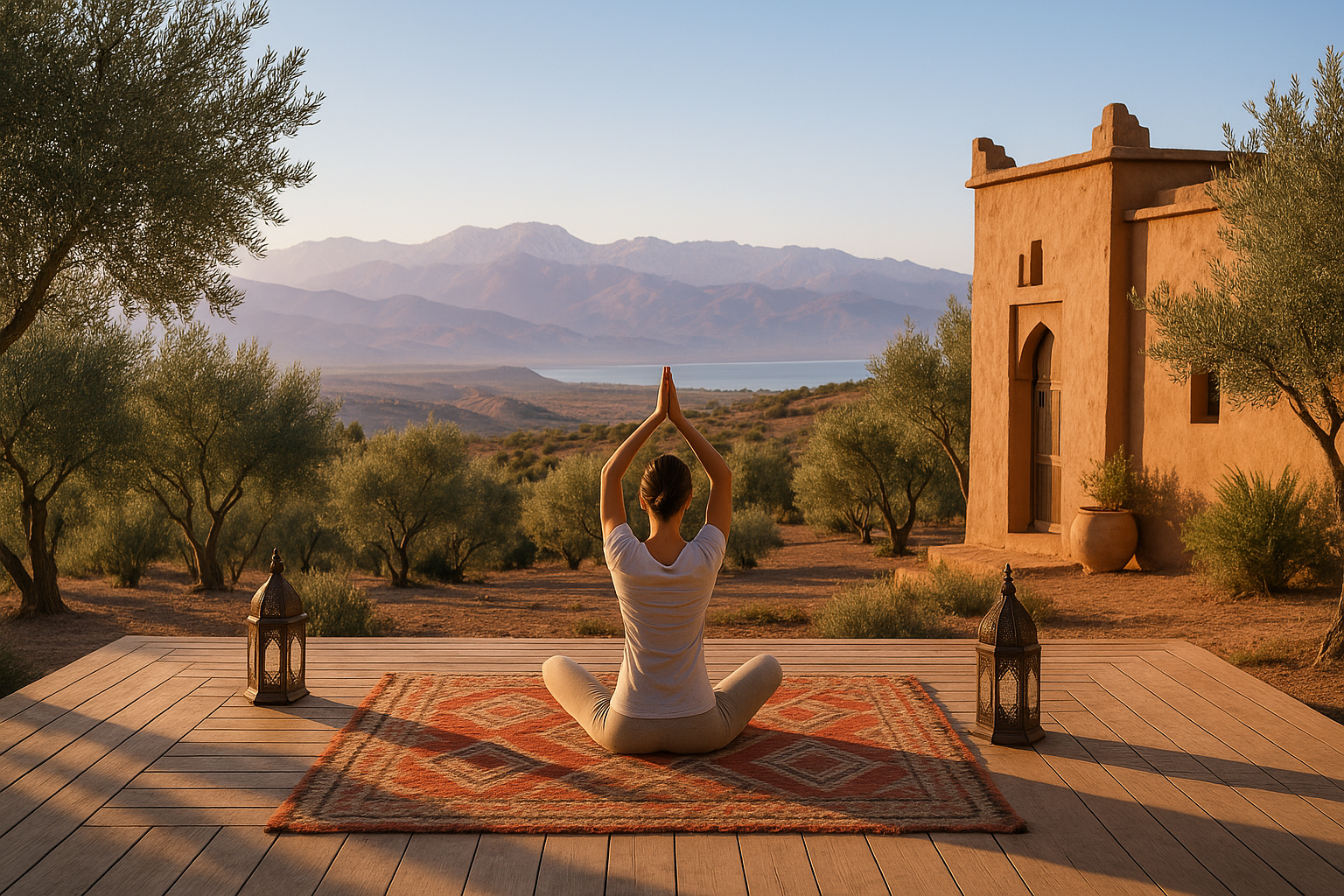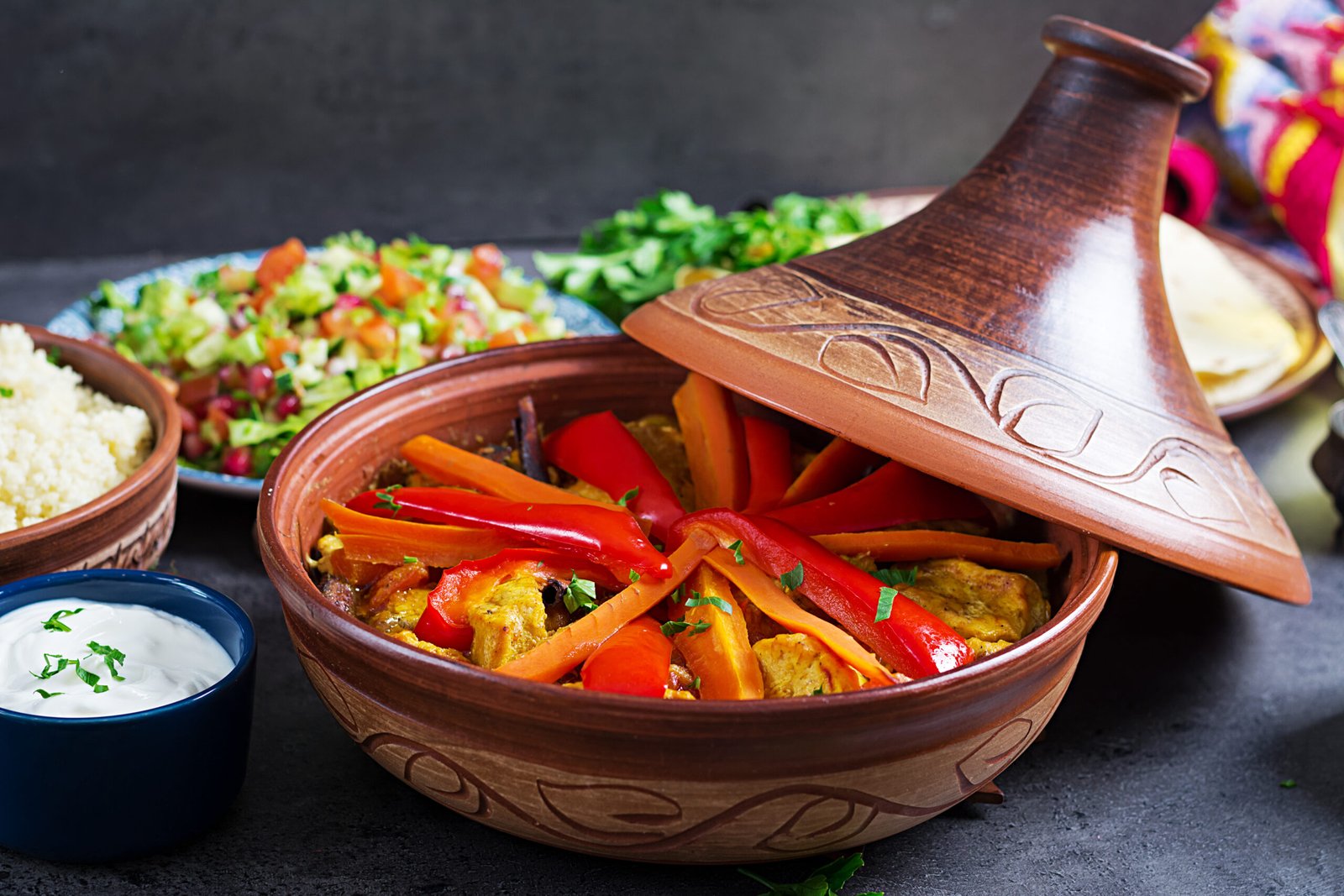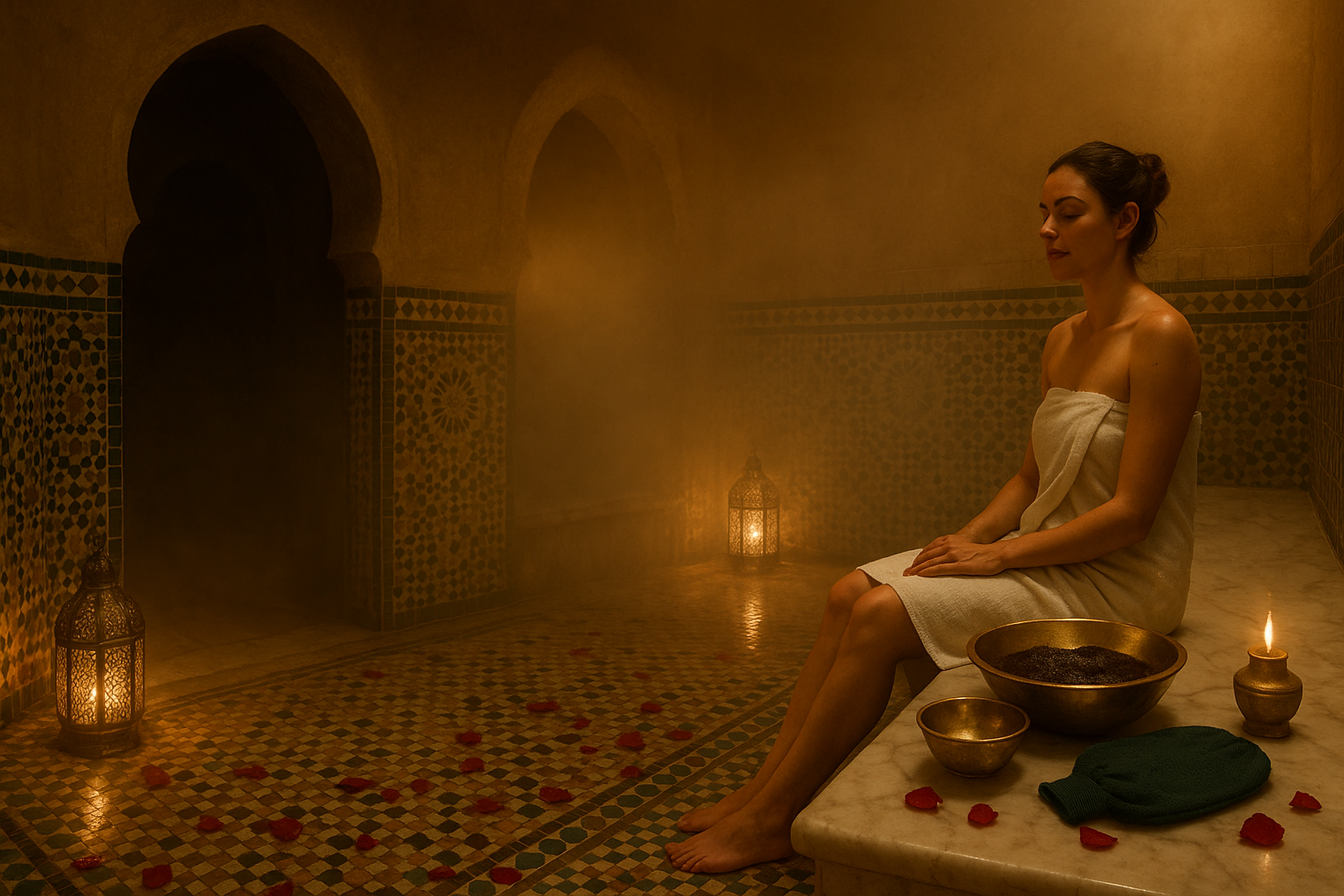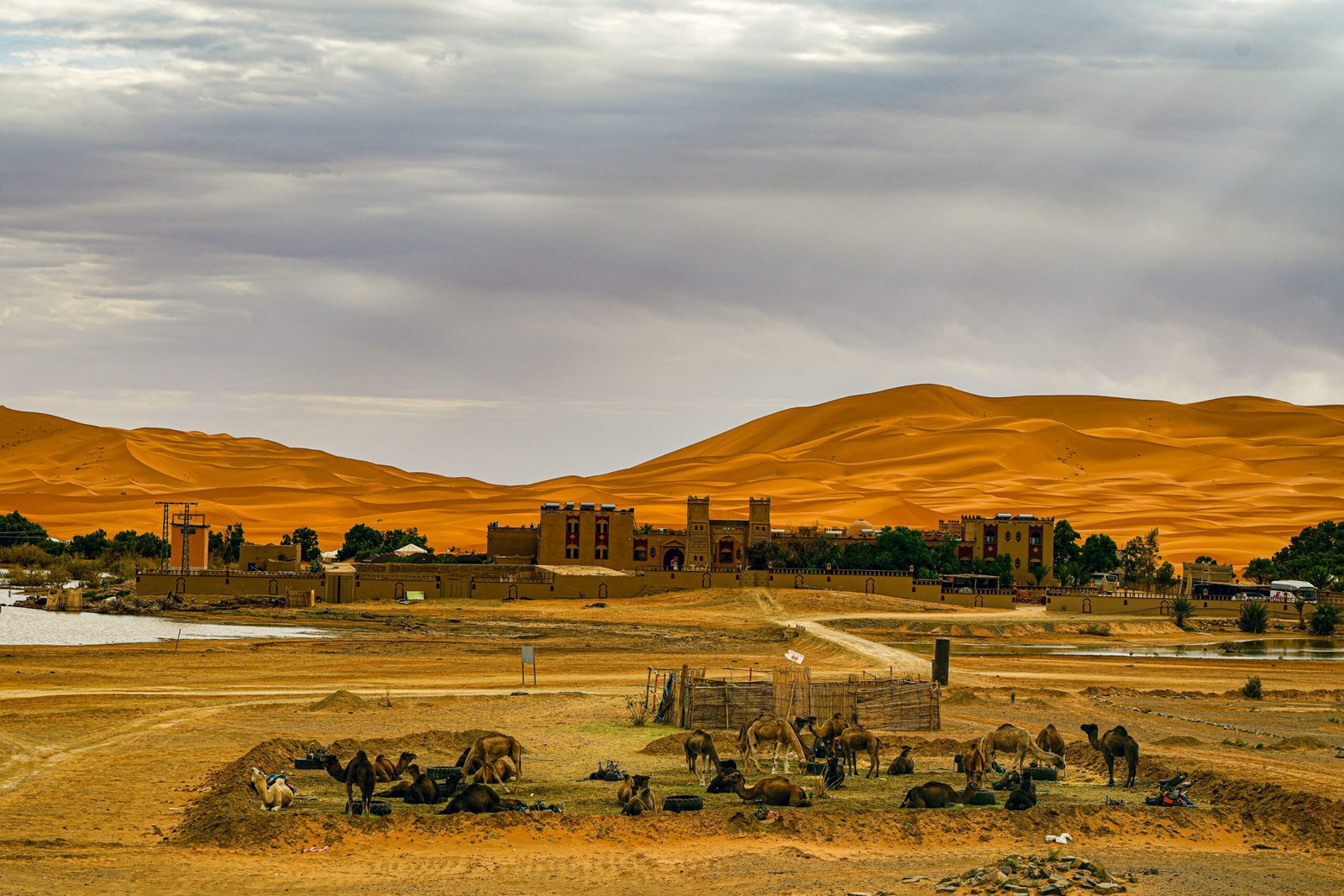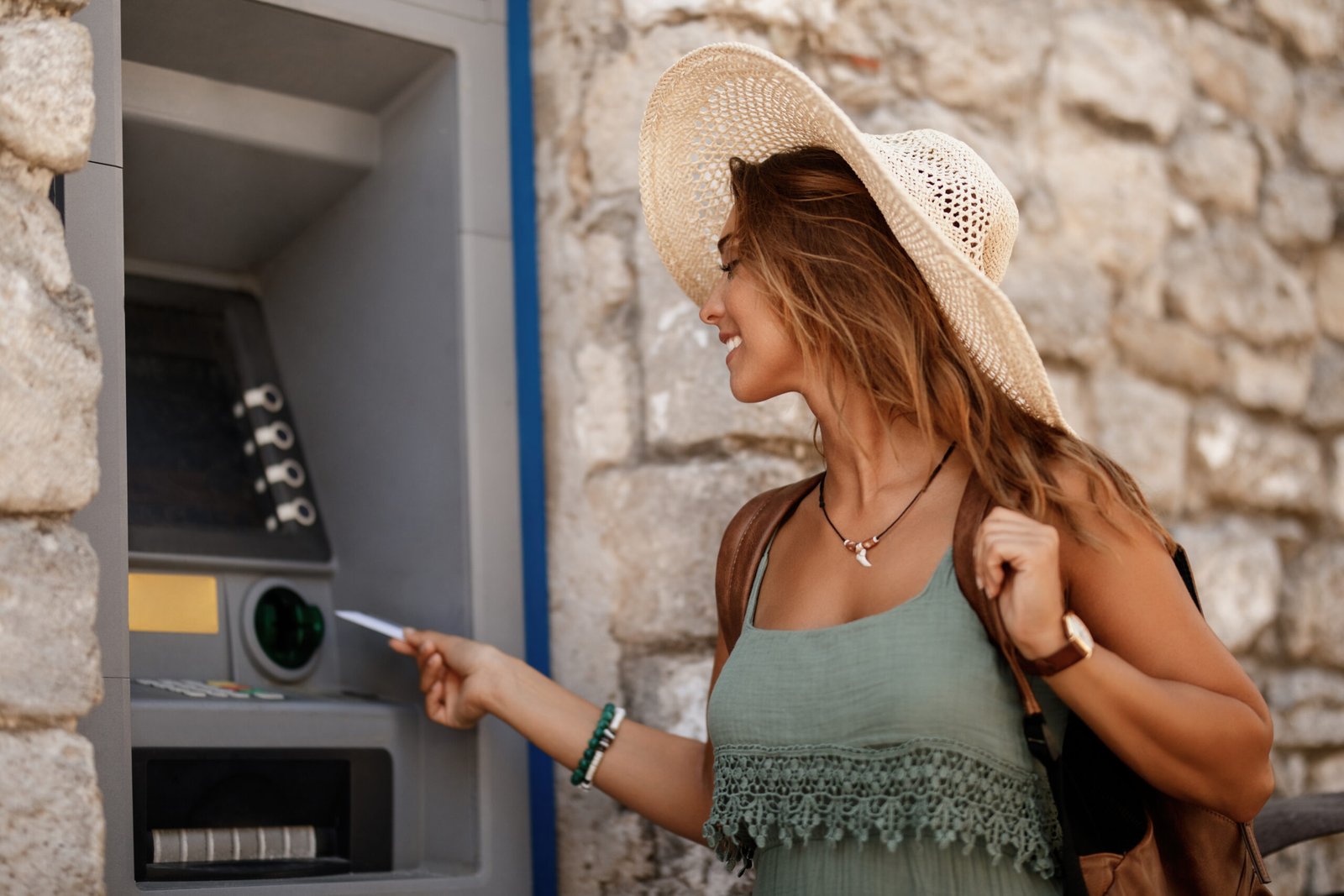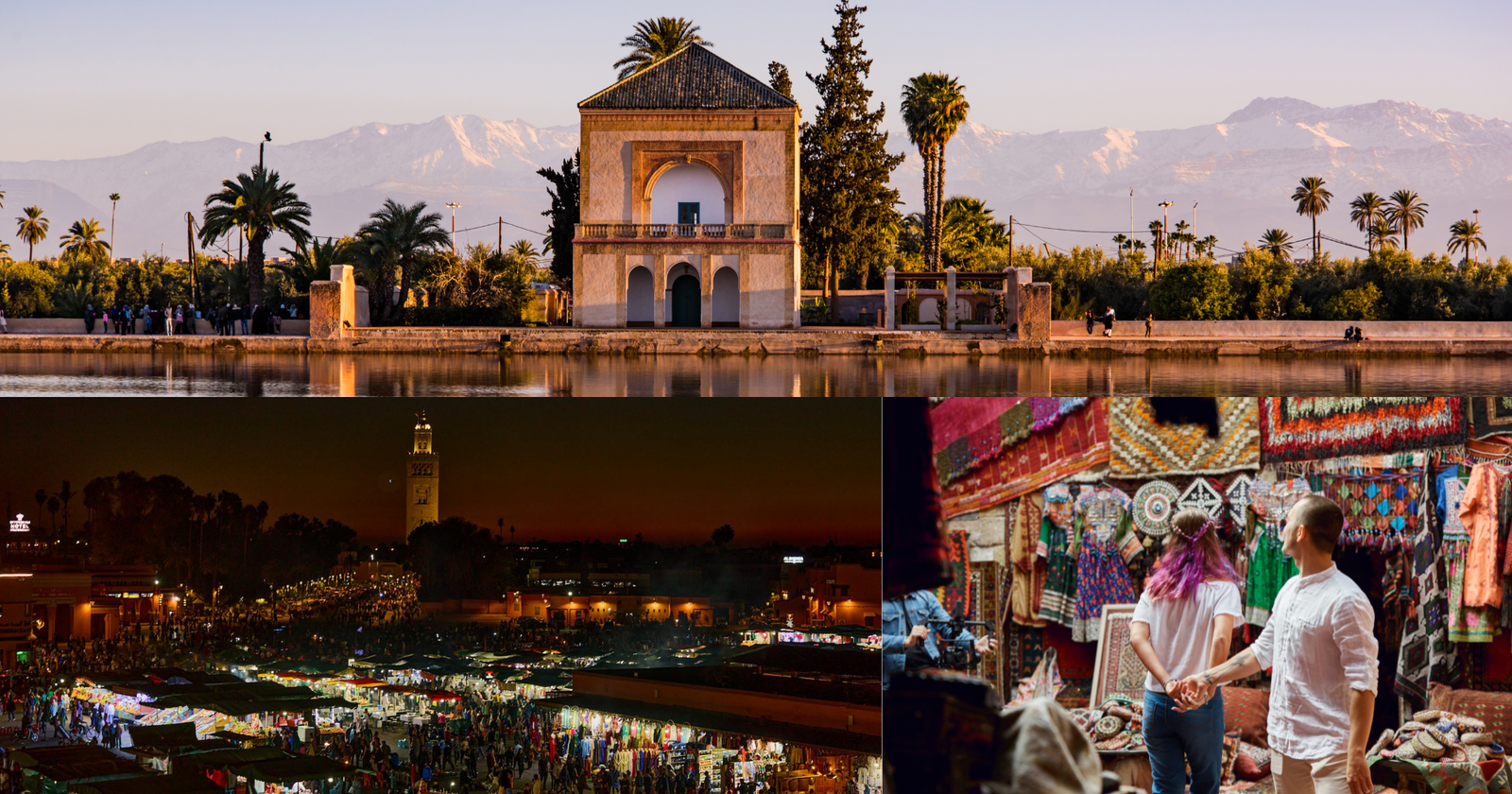Did you know the Moroccan dirham is the only legal money in Morocco? Using it can save you up to 10% on things you Did you know the Moroccan dirham is the only legal money in Morocco? Using Morocco currency can save you up to 10% on things you buy. Knowing about Morocco currency is key for a smooth trip.
The dirham (MAD) shows King Mohamed VI, showing the country’s royal side. Learning about its different values, symbol, and exchange rates helps you handle your money well.
Before your trip, it’s important to know how to exchange your money for the local currency. This way, you can make the most of your money.
Key Takeaways
- Understand Morocco currency and its denominations
- Learn how to exchange your money effectively
- Discover tips to manage your money during your visit
- Familiarize yourself with the dirham symbol and exchange rates
- Make the most of your money by using the local currency
Understanding Morocco Currency: The Dirham (MAD)
Travelers and investors need to know about the Moroccan dirham. It’s the official Morocco currency and is key to the country’s economy.
History and Development of the Dirham
Morocco currency started in 1960, replacing the Moroccan franc. It has seen changes, like moving to a managed float exchange rate regime.
Current Banknotes and Coins
Moroccan banknotes come in 20, 50, 100, and 200 dirham denominations. They show historical figures and architectural designs. Coins range from 1 to 50 santims and 1 to 10 dirhams.
Banknote Denominations and Features
Each banknote has its own design. For example, the 20-dirham note shows a historic Moroccan city. The Moroccan currency symbol, د.م., is on these notes.
Coin Values and Designs
Moroccan coins feature the country’s coat of arms or national symbols. They are made from durable materials.
DenominationMaterialDesign1 DirhamCopper-NickelCoat of Arms5 DirhamsNickel-BrassNational Monument10 DirhamsBi-metallicHistorical Figure
The Moroccan Currency Symbol and Code
The Moroccan dirham symbol is د.م., and its code is MAD. Knowing these symbols is vital for any financial dealings with Morocco currency.
Morocco Currency Exchange Rates
Knowing the current exchange rates for Morocco currency is key for a smooth trip to Morocco. The rate between the Moroccan dirham and other currencies like the US dollar and euro changes. This affects how much you can buy.
Current Exchange Rates with USD and EUR
The current exchange rate is important for knowing how much you get for your money. As of the latest updates, here are the exchange rates:
- 1 USD = approximately 10 MAD
- 1 EUR = approximately 11 MAD
These rates can change, so always check the latest before you make any transactions.
Historical Exchange Rate Trends
Looking at historical trends can give you insights into Morocco currency performance. Over the past year, the dirham has been relatively stable against the USD and EUR. There have been small changes.
Using Online Currency Converters for Morocco
Online currency converters can keep you updated on Morocco currency exchange rates. Sites like XE.com or Google Currency Converter offer real-time rates. This makes managing your money easier during your trip.
Understanding Exchange Rate Fluctuations
Exchange rate changes are due to many economic factors. Knowing these can help you make smart choices about when to exchange your money.
Best Places to Exchange Money in Morocco
Knowing where to exchange your money in Morocco can save you from unnecessary fees and scams. Morocco offers multiple options for exchanging Morocco currency. Understanding the pros and cons of each can make a big difference in your travel experience.
Banks and Official Exchange Offices
Banks and official exchange offices are safe and reliable places to exchange Morocco currency. They offer competitive exchange rates for Moroccan dirham (MAD). The risk of scams is low. Major banks like Attijariwafa Bank and BMCE Bank have branches in most cities and towns.
Airport Exchange Services: Convenience vs. Cost
Airport exchange services are convenient, but they often have higher fees and less favorable exchange rates. If you’re arriving in Morocco, exchange a small amount at the airport. Then, find a better deal elsewhere.
Hotel Currency Exchange Services
Many hotels in Morocco offer currency exchange services. But, be cautious as the rates might not be as competitive as banks or official exchange offices. It’s a viable option, though, if you’re in a remote area with limited access to other exchange services.
Avoiding Unofficial Money Changers
Unofficial money changers on the street can be tempting. They offer potentially competitive rates. But, they pose significant risks, including scams and counterfeit currency.
Risks of Street Exchange
Exchanging money on the street can expose you to various risks, including:
- Scams and fraud
- Counterfeit currency
- Unfavorable exchange rates
How to Identify Licensed Exchangers
To avoid scams, look for licensed exchange offices. They are typically marked and have a transparent rate display. Always check the current Morocco currency exchange rate before making a transaction. Be wary of deals that seem too good to be true.
By being informed and cautious, you can ensure a smooth and secure currency exchange experience in Morocco.
ATM Usage and Bank Cards in Morocco
Traveling to Morocco means knowing how to use ATMs and bank cards for accessing Morocco currency. Morocco has many ATMs, mainly in big cities and tourist spots. This makes getting your money easy.
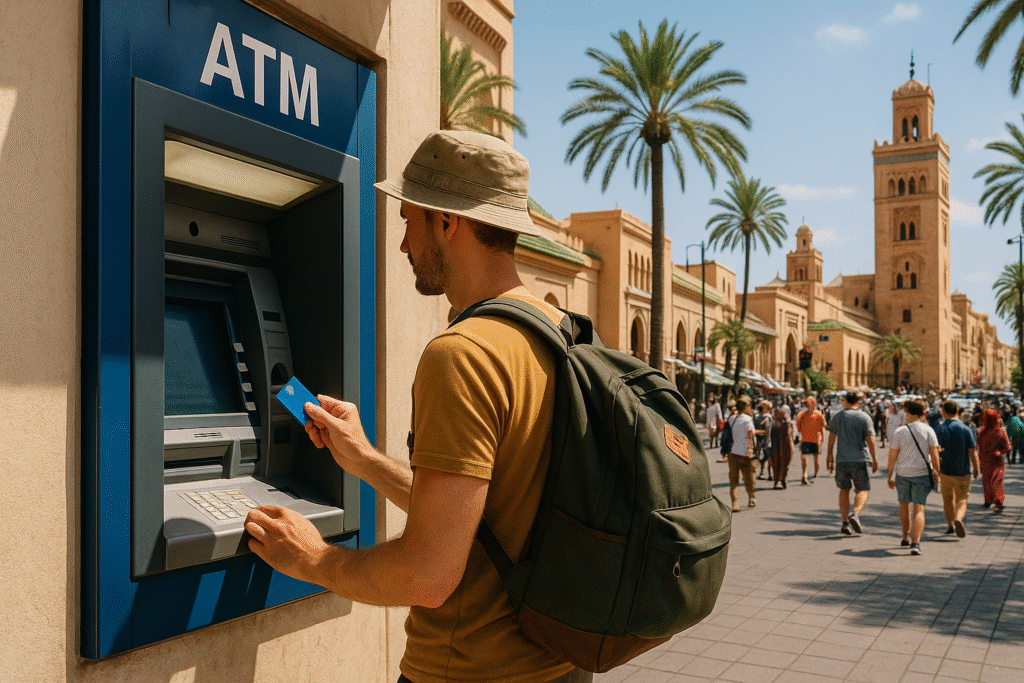
FFinding ATMs in Major Cities and Tourist Areas
In cities like Marrakech, Fez, and Rabat, finding ATMs is simple. They’re near banks, malls, and places tourists like. Choose ATMs from your bank to avoid extra fees.
Bank Fees and Withdrawal Limits
Your bank might charge extra for foreign transactions and have limits on withdrawals. Talk to your bank before you go to know about these costs and limits.
Safety Tips for ATM Usage
Using ATMs safely is key. Here are some tips:
- Choose ATMs in safe, well-lit places
- Hide the keypad when typing your PIN
- Don’t use ATMs that look broken or tampered with
Avoiding Card Skimming
Card skimming is a risk at ATMs. Check the ATM first and steer clear of any that seem off.
Best Times to Use ATMs
It’s safer to use ATMs during the day. Stay away from them at night, if you can.
Notifying Your Bank Before Travel
Tell your bank you’re traveling before you go. This stops your card from being flagged as suspicious. It’s a small step that can save you a lot of trouble.
With the right knowledge and precautions, using ATMs and bank cards in Morocco is easy and safe.
Credit and Debit Card Acceptance in Morocco
Planning your trip to Morocco? Knowing how to use your cards with Morocco currency is key. Credit and debit cards work at many places, like fancy hotels and restaurants. But, cash is often the go-to in local shops and markets.
Where Cards Are Commonly Accepted
In big cities like Marrakech and Rabat, card use is growing. You can pay with cards at fancy eateries, hotels, and big stores. But, keep some Morocco currency for small buys or at traditional markets.
Places That Typically Require Cash
Local markets and small vendors want cash. It’s smart to have Morocco currency when card machines fail or in rural areas with limited card use.
Avoiding Card Fraud in Morocco
To dodge card scams, use ATMs in safe spots and watch your PIN. Always check your account for odd transactions linked to your Morocco currency exchange.
Foreign Transaction Fees to Consider
Before you go, ask your bank about card fees for foreign use. Some banks offer cards with no foreign fees. This can save you money when handling Morocco currency.
Budgeting for Your Morocco Trip
To enjoy your Moroccan adventure, budgeting with Morocco currency is key. Costs vary by city, so knowing what to expect helps. Plan your trip and stay within your budget by understanding accommodation, food, and transport costs.
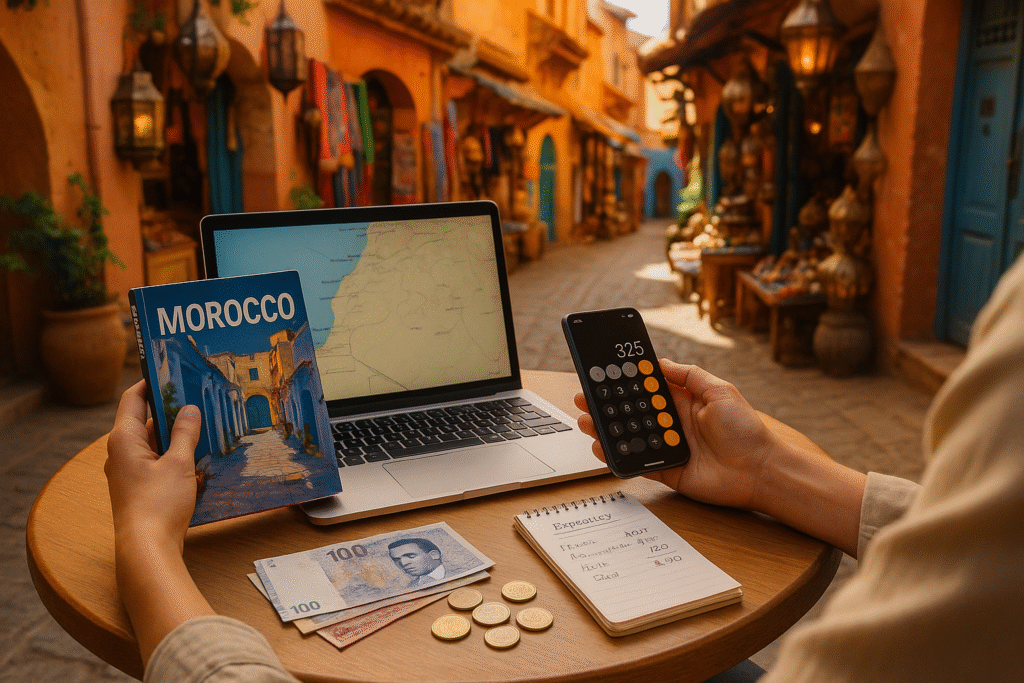
Average Costs for Accommodation by City
Accommodation prices in Morocco differ by city. Marrakech is pricier due to its tourist appeal. Expect to pay $20-$50 per night for a budget hotel in Marrakech. In cities like Fez or Meknes, prices are $15-$30 per night.
Food and Dining Expenses
Eating in Morocco can be cheap or pricey. Street food and local riads cost $3-$5 per meal. Mid-range restaurants charge $10-$20 per meal.
Restaurant Prices
A meal at a mid-range restaurant costs $10-$20. Fine dining can be $30-$50 or more per meal.
Street Food Costs
Street food is a great, affordable choice. Meals start at $3. Try tagines, kebabs, and fresh juices.
Transportation Costs
Transport in Morocco is affordable with many options.
Taxis and Ride Services
Taxis are common, with short rides $2-$5. Ride-hailing is also available in big cities.
Public Transportation
Public buses and trains are cheap, starting at $1. They connect major cities, perfect for longer trips.
Shopping and Souvenir Budgeting
Morocco’s markets and handicrafts are famous. Budget $50-$100 per person for souvenirs, based on your shopping.
Remember, the Moroccan dirham is Morocco currency. Knowing the exchange rate is key. With smart budgeting, your trip will be stress-free and memorable.
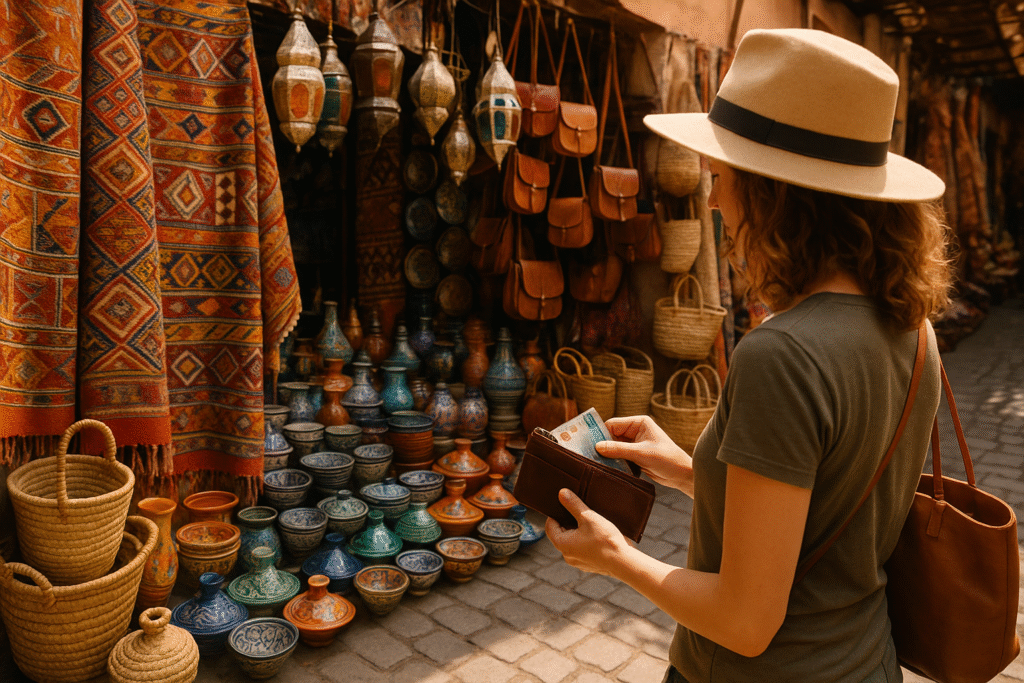
Remember, the Moroccan dirham is the local currency. Knowing the exchange rate is key. With smart budgeting, your trip will be stress-free and memorable.
Bargaining with Moroccan Currency in Souks
To dive into Moroccan shopping culture, learning to haggle with Morocco currency is key. Bargaining is common in souks. Knowing Morocco currency and fair prices can make your shopping better.
When to Haggle and When Not To
Bargaining is expected in most souks and markets. But, it’s not needed in some fixed-price stores or for services. Knowing when to negotiate is important for a good shopping trip.
Bargaining Etiquette in Moroccan Markets
Be respectful and polite when bargaining. A smile and friendly attitude help a lot. Knowing basic Arabic phrases, like “Shukraan” (thank you), shows you appreciate the vendor.
Understanding Fair Prices
Research the average prices of items you want before going to souks. Vendors usually start high, expecting you to negotiate.
Phrases to Know for Bargaining
Learn phrases like “Kam fiha?” (how much is it?) and “Mrahba” (hello). Knowing Arabic numbers helps understand Morocco currency prices better.
Arabic PhraseEnglish TranslationUse in BargainingShukraanThank youExpressing gratitudeKam fiha?How much is it?Asking the priceMrahbaHelloGreeting the vendor
Understanding bargaining with Morocco currency makes shopping in Morocco’s souks more authentic and rewarding.
Tipping Customs in Morocco
Traveling to Morocco? Knowing the local tipping customs with Morocco currency can make your trip better. Tipping shows you appreciate good service. Knowing the norms helps you in different situations.
Appropriate Tipping in Restaurants and Cafés
In Morocco, tipping in restaurants and cafés is common. A 5-10 dirhams tip is good for basic service. For excellent service, 10-20 dirhams is better. If service was outstanding, you can tip even more.
Tipping Guides and Drivers
Tipping guides and drivers is expected. Guides get 50-100 dirhams per day for good service. Drivers should get 20-50 dirhams per day.
Tipping Hotel Staff
Hotel staff also like tips. Porters get 10-20 dirhams per bag. Housekeeping should get 10-20 dirhams per day.
Tipping for Other Services
For spa treatments or tour operators, tipping varies. A 10-20% of the total bill is a good rule. Always check if a service charge is included to avoid double tipping.
Avoiding Currency Scams in Morocco
To have a worry-free trip to Morocco, learn about common Morocco currency scams. Knowing these risks helps keep your money safe. This way, you can enjoy your trip without stress.
Common Currency Scams to Watch For
Morocco, like many places, has scams targeting tourists. One scam is misrepresenting exchange rates or ripping off tourists with fake money. Be careful with unofficial Morocco currency exchange services. They might give bad rates or hidden fees.
Counterfeit Money Awareness
There’s also a risk of counterfeit Morocco currency. Knowing how to spot real banknotes is key to avoiding fake dirhams.
How to Identify Genuine Moroccan Banknotes
Genuine Moroccan banknotes have watermarks, holograms, and raised printing. Always check your dirhams, even when getting big bills.
What to Do If You Receive Counterfeit Money
If you get counterfeit money, tell the local authorities right away. Don’t try to use fake dirhams. It could cause big problems.
Safe Money Handling Practices
To avoid scams, handle Morocco currency wisely. Use ATMs in safe places. Also, tell your bank you’re traveling. This prevents account issues.
What to Do with Leftover Moroccan Money
When you’re leaving Morocco, figuring out what to do with your leftover Morocco currency is key. You have a few choices to get the most out of your money.
Converting Back to Your Home Currency
You can exchange your dirhams for your home currency at airports or currency offices. This is handy, mainly if you have a lot of Morocco currency left.
Spending Before Departure
Another choice is to spend Morocco currency before you leave. You can buy souvenirs, eat at local restaurants, or enjoy some last-minute activities.
Keeping Dirhams as Souvenirs
Some people like to keep a few dirhams as keepsakes. While they’re not collectible, they can remind you of your trip.
Currency Exchange at Moroccan Airports
Major Moroccan airports have currency exchange services. This makes it easy to change your dirhams before you go. But, the exchange rates might not be as good as in cities.
OptionDescriptionConsiderationsConverting BackExchange dirhams at airports or currency officesConvenient but check ratesSpending Before DepartureUse dirhams for last-minute shopping or diningEnsure you have enough for needsKeeping as SouvenirsRetain dirhams as mementosLimited collectible valueAirport ExchangeExchange dirhams at airport facilitiesRates may be less favorable
By thinking about these options, you can handle your leftover Morocco currency well. This ensures a smooth end to your trip.
Conclusion: Managing Your Money for a Stress-Free Morocco Trip
Getting ready for your Morocco trip? Knowing about Morocco currency is key for a smooth trip. This article has given you the tools to handle money matters, from exchanging Morocco currency to using ATMs and cards.
Stay up-to-date with Morocco currency exchange rates to get the most out of your visit. Whether you’re browsing souks or trying local food, managing Morocco currency well will make your trip better.
As you see Morocco’s cities and landmarks, keep an eye on Morocco currency. This knowledge helps you spend wisely and enjoy your time in Morocco.

